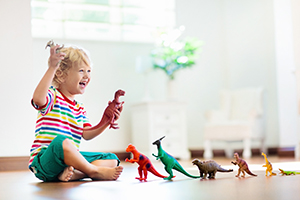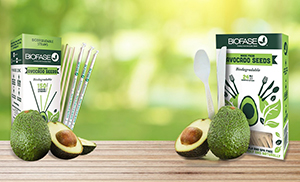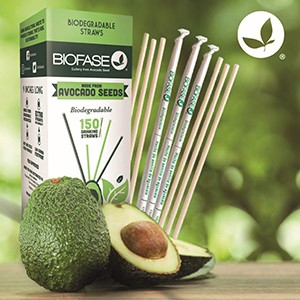The climate crisis is already resolved.
 We already know all the facts and solutions. We already know all the facts and solutions.
All we have to do is wake up and change. ”
These are the words of Greta Thunberg, the 16-year-old climate activist who was named "Person of the Year" last week by Time magazine.
She is the youngest person to have received this title.
With this one of the most important magazines in the world recognizes an important and undeniable fact: our environment is in very poor condition.
Biofase tries to contribute to the fight against pollution by making ecological straws available to the hotel and retail sectors.
Organic cutlery will follow soon. Visit our website: www.biofase.be
Mass extinction
At first glance, the figures do not seem very encouraging.
We are in the middle of the sixth mass extinction since the birth of our planet.
Over 99% of all the organisms that have ever lived on our planet have disappeared.
That humanity can be the next victim is simply shocking.
Right now, a “total annihilation process” is underway on Earth, in which half of all the animal species with which we share this planet have disappeared.
In addition, the predictions are quite grim: 99.9% of all critically endangered species and 67% of all species will simply disappear over the next 100 years.
For many of them, the clock can no longer be reversed, but if we manage to fight one of the biggest culprits in time, we can limit some of the damage.
What evil are we talking about?
Plastic, of course.
Let's face it: historically, we owe much of our current prosperity to plastic.
In the meantime, the good has long since outlived its usefulness, especially if you know there are enough alternatives.
We find plastic waste around the globe, from the end of the North Pole to the most distant point of Antarctica.
It fills the deep seas and is even present in a heap on Mount Everest.
Worse still: this material, which does not exist in nature, is found today in the stomachs of 90% of all seabirds and in half of all sea turtles, while suffocating both small fish and killer whales. immense.
If this continues, by 2050, the mass of plastic in our oceans will be greater than the mass of all the fish that live there.
In addition, living organisms that filter water - such as plankton, shells and certain species of whales - cannot distinguish between food and plastic.
The latter substance can add to their immune system so that they die, but it also infiltrates their environment constantly.
Some scientists even suspect that toxins can migrate to their tissues - and that's exactly what we like to eat.
As if that weren't enough, hundreds of thousands of sea creatures get tangled up in abandoned plastic every year, usually resulting in death.
 To the Biofase.be website
To the Biofase.be website
Plastic is one of the most important products from hydraulic fracturing, a highly polluting process that has an impact on the water we swim in, the soil we walk on and the air we breathe.
It causes subsidence and increases the pressure in underground rock formations, from which earthquakes can occur.
As if that weren't enough, plastic seems almost indestructible.
The substance survives even the worst climatic conditions.
For example, rubber canoes that have been floating on the water for decades, despite the scorching sunshine and freezing cold that can only be found in places like Antarctica.
Because many of us think that "biodegradable" also means that plastic ceases to exist, we sometimes feel misinformed when we talk about recycling.
The truth?
The vast majority of plastic is broken down into small pieces and this is sometimes even more dangerous, due to more difficult visibility and the edible size for many animals ... and we are not even talking about particles of microscopic plastic present in our beauty products and many other things.
A 2017 study showed that 83% of tap water worldwide is contaminated with plastic.
In the United States, we even speak of 94%, while the United Kingdom, France and Germany, as the best students in the class, still reach 72%.
BiofaseBiofase takes its responsibility seriously.
From 2021, the production of many disposable plastic products in the European Union will be curbed, but the company did not want to wait that long.
In order to be able to offer an ecological alternative to plastic, Biofase has started looking for natural waste that can be transformed into straws and cutlery.
He found it in Mexico, where the world's largest avocado crop takes place.
The production of guacamole and avocado oil has increased enormously in recent years.
In fact, Mexico is responsible for at least 45% of the global avocado market, leaving countries like the Dominican Republic, Peru, Colombia and Indonesia far behind.
The production of avocados in itself is unfortunately not always environmentally friendly and is the cause of some of the Latin American deforestation.
It is therefore high time to recycle this "superfood" as much as possible.
For this, Biofase has developed a patented technology in which the avocado grains that would otherwise end up in our waste are transformed into a solid material.
A biopolymer is extracted from these seeds which is an excellent alternative to conventional plastic products which cause enormous damage to our soil.
The fact that it is part of agricultural waste instead of, for example, corn or potatoes, which are used among other things as animal feed, is an additional advantage.
Biofase straws and cutlery are made up of 60% of the aforementioned avocado biopolymers and 40% of synthetic organic compounds.
It also makes them more resistant than many other alternatives on the market.
Even better: while paper straws often lose their structure when used, Biofase remains solid - even when it comes to hot drinks.
Bamboo straws must be cleaned after use, which often results in too much waste of time for hotels and restaurants.
In addition, Biofase straws have another advantage: they are considerably cheaper than their glass, copper or metal cousins.
Throw them in the compost or put them in the ground and in a year, they are dissolved completely naturally and without any treatment, of which 60% even within 240 days.
Of great importance to Biofase is that they immediately contain 60% less harmful substances than petroleum-based plastic.
After all, the goal is clear: to help create a more livable and beautiful world to provide a better future for our children.
Not just because we want to, but because we have to.
|
 We already know all the facts and solutions.
We already know all the facts and solutions.
